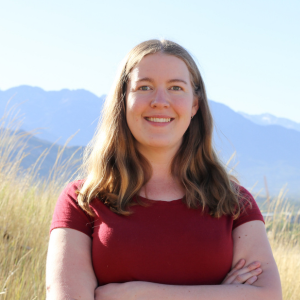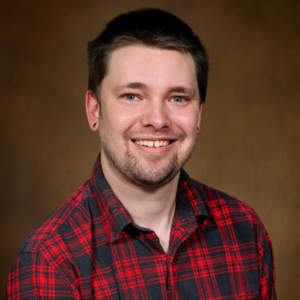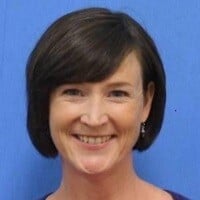This year, the American Society of Human Genetics (ASHG) will hold its annual meeting in Denver, Colorado, from Nov. 5—9 at the Colorado Convention Center. The event will explore various topics, including new technologies, applications, and research highlighting the year's most compelling advancements in genetics and genomics. The Department of Biomedical Informatics (DBMI) at the University of Colorado School of Medicine (SOM) will be prominently represented by more than 15 faculty members and trainees. We spoke with several of our primary faculty to gain insights into their presentations and to understand the benefits of attending this meeting.
Spotlight on DBMI at ASHG

Harriet Dashnow, PhD
Harriet Dashnow, PhD, assistant professor of biomedical informatics, plans to explore the fascinating world of de novo mutations and tandem repeats through a poster presentation on Wednesday, Nov. 6, from 2:30—4:30 p.m. Dashnow will share insights into this groundbreaking research, revealing how her team focused on genotyping tandem repeats to identify genetic diseases. She explained, “Although tandem repeats make up only about 9% of our genome, they are responsible for a significant portion of de novo mutations."
This research hones in on the most mutable regions of genes. It showcases a novel method Dashnow and her team developed to track de novo mutations across four generations of a family. While they don’t expect to find disease-associated mutations in this family, Dashnow highlighted the value of their findings, “By studying individuals who don’t have a disease, we can uncover how these mutations occur in a non-disease context. This knowledge can then be applied to at-risk families, helping us predict potential outcomes for them.”
Iain Konigsberg, PhD
 Iain Konigsberg, PhD, research instructor of biomedical informatics, will dive into the use of blood-based 'omics data to predict both cross-sectional and longitudinal traits related to chronic obstructive pulmonary disease (COPD) on Thursday, Nov 7, from 11:30—11:45 a.m. Konigsberg shared that he and his team are developing 'omic risk scores (ORS), tools that integrate various omic features to predict a wide array of traits—from lung function measurements to crucial disease outcomes like exacerbations and mortality.
Iain Konigsberg, PhD, research instructor of biomedical informatics, will dive into the use of blood-based 'omics data to predict both cross-sectional and longitudinal traits related to chronic obstructive pulmonary disease (COPD) on Thursday, Nov 7, from 11:30—11:45 a.m. Konigsberg shared that he and his team are developing 'omic risk scores (ORS), tools that integrate various omic features to predict a wide array of traits—from lung function measurements to crucial disease outcomes like exacerbations and mortality.
He pointed out, “This talk highlights the growing potential of 'omics data to not only inform biological discovery but also to enhance clinical prediction models." Konigsberg shared that they aim to create innovative tools to stratify patients and personalize healthcare interventions by harnessing the rich datasets from large cohorts. He explained that the ability of ORS to forecast significant outcomes, such as disease progression, marks a vital leap toward precision medicine, particularly for chronic conditions like COPD.
Konigsberg is most excited to hear more about the growing emphasis on including diverse and underrepresented populations in genetic research. He emphasized, “There’s growing attention to the role of genetics in the context of social determinants of health—the conditions in which people are born, live, work, and age. These trends are crucial for ensuring that the benefits of genetic research are equitably distributed and that we understand disease in a broader, more comprehensive context.”
The community spirit at the ASHG meeting is something Konigsberg appreciates. He added, “While much of my collaborative work is done via Zoom, there’s nothing quite like meeting colleagues in person. It’s a rare opportunity to connect with friends and collaborators from around the world, share ideas, and even unwind together at social events. Plus, industry partners are known for hosting some sick parties!”
Emily Todd, MS, CGC
 Emily Todd, MS, CGC, instructor of biomedical informatics, plans to discuss the innovative process of high-impact pathogenic variant (HIPV) reporting within the biobank through a poster presentation on Thursday, Nov. 7, from 2:30—4:30 p.m. Todd will explore the crucial role of sharing genetic results with participants and their families. Todd noted, “When we share HIPV results with biobank participants, we discuss the implications of these results on the health of the participants and their biological relatives,” she added, "Individuals who receive a HIPV result from the biobank are later surveyed on their experience, and my poster discusses survey results detailing actions taken by the participants related to family communication and actions taken by the family members related to these results."
Emily Todd, MS, CGC, instructor of biomedical informatics, plans to discuss the innovative process of high-impact pathogenic variant (HIPV) reporting within the biobank through a poster presentation on Thursday, Nov. 7, from 2:30—4:30 p.m. Todd will explore the crucial role of sharing genetic results with participants and their families. Todd noted, “When we share HIPV results with biobank participants, we discuss the implications of these results on the health of the participants and their biological relatives,” she added, "Individuals who receive a HIPV result from the biobank are later surveyed on their experience, and my poster discusses survey results detailing actions taken by the participants related to family communication and actions taken by the family members related to these results."
Todd shared her excitement about presenting at this year's ASHG conference, "I strongly support our group presenting at a national conference to promote our programs, educate our peers on our research, and connect with others in the field who have similar interests."
She is particularly eager to expand her understanding of the biobank's potential. Todd emphasized, “I am most interested in learning how our biobank can provide information on prevalence, expression, and penetrance of pathogenic/likely pathogenic variants and how this information differs when studying whole populations as opposed to only studying those with a related diagnosis.”
The next generation of genomic scientists
ASHG will provide a platform for many DBMI members to showcase their research, including second-year scholars from the Pathways in Genomic Data Science program (PATH-GDS). Additionally, students from the Pathways in Genomic Research Experiences for Undergraduates program (PATH-GREU) will be present, as this will be their first conference.
In 2023, Audrey Hendricks, PhD, associate professor of biomedical informatics, collaborated with faculty at the University of Colorado Denver and the Metropolitan State University of Denver to create two research pathways in genomic science. Five-year grants were awarded by the National Human Genome Research Institute — totaling more than $3 million — to fund the two partnerships. These programs are designed to provide students with a comprehensive experience, including three eight-week rotations and a 17-month immersive research component over the course of two years. Students engage with various labs and explore different aspects of genomic research.
We look forward to their participation in their first national conference, where they can highlight their work and expand their professional networks.
Uniting experts in genomics
DBMI and PATH-GDS presenters include:
|
Emily Aaron Poster Title: Differential Gene Expression Related to Opioid Use Behaviors in a Hybrid Rat Diversity Panel Date: Thursday, Nov. 7 Time: 2:30—4:30 p.m.
*2023 PATH-GDS Scholar |
Betzaida Maldonado, MS Poster Title: Evaluating the impact of race, ethnicity, and ancestry (REA) as population labels in genomics research ⭐ Date: Friday, Nov. 8 Time: 2:30—4:30 p.m. |
Jack Staples, PhD Poster Title: Systematic Evaluation of Polygenic Score Performance Across Diverse Population Characteristics in the All of Us Research Program Date: Friday, Nov. 8 Time: 2:30—4:30 p.m. |
Kendra Ferrier, PhDPoster Title: Multi-Factor Analysis of Nicotine Metabolism, Genomics, and Epigenomics in American Indians from the Strong Heart Study Date: Friday, Nov. 8 Time: 2:30—4:30 p.m. |
Crystal Musser, MS Poster Title: Strong Heart Study: Serum nicotine metabolite ratio (NMR) biomarker informs nicotine metabolism variation in American Indians who smoke commercial cigarettes Date: Wednesday, Nov. 6 Time: 2:30—4:30 p.m. |
Kristen Sutton, PhD Poster Title: Removing confounding and refining mendelian randomization genetic instruments of dietary intake traits Date: Thursday, Nov. 7 Time: 2:30—4:30 p.m. |
|
Parker Hicks Poster Title: Cross-modal machine learning enables researchers to easily leverage public transcriptomics samples for data-driven discovery of biomedical contexts associated with their genes of interest Date: Wednesday, Nov. 6 Time: 2:30—4:30 p.m.
|
Tristen Orndorff Poster Title: Determination of the function of ZBTB40 in osteoblast maturation Date: Friday, Nov. 8 Time: 2:30—4:30 p.m.
*2023 PATH-GDS Scholar |
Souha Tifour, MS Poster Title: Unveiling the Influence of Reference Sample Size on Ancestry Estimation of Population Structure Date: Wednesday, Nov. 6 Time: 2:30—4:30 p.m.
*2023 PATH-GDS Scholar |
|
Katherine Kichula Poster Title: Genes encoding inhibitory KIR contribute to pre-eclampsia risk in Uganda Date: Thursday, Nov. 7 Time: 2:30—4:30 p.m. |
Carissa Sherman Poster Title: Association of Chromosome 19 Variants with Nicotine Metabolite Ratio in American Indians: Insights from the Strong Heart Study Date: Wednesday, Nov. 6 Time: 2:30—4:30 p.m.
|
Luciana Vargas, MS Poster Title: Calibration of polygenic risk scores in African Americans using estimated genetic ancestry Date: Thursday, Nov. 7 Time: 2:30—4:30 p.m.
|
|
Elizabeth Kudron, MD Poster Title:Utilizing web analytics to assess patient engagement and prioritize educational targets for population-scale biobanks Date: Thursday, Nov. 7 Time: 2:30—4:30 p.m.
|
Jonathan Shortt, PhD Poster Title: Exploring platform validation of modern microarrays with applications in polygenic risk scoring at-scale in a large institutional biobank Date: Thursday, Nov. 7 Time: 2:30—4:30 p.m.
|
Jade Young Presentation Title: CellPhenoX: An eXplainable Cell-specific machine learning method to predict clinical Phenotypes using single-cell multi-omics Date: Wednesday, Nov. 6 Time: 10:15—10:30 a.m.
|
View the full schedule for the ASHG Annual Meeting at this link.





.png)
.jpg)